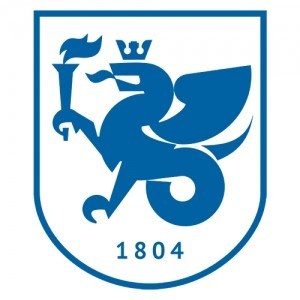Photos of university / #kazanfederaluniversity
Medical Physics at Kazan Federal University is a comprehensive and interdisciplinary program designed to prepare students for a successful career in the healthcare and medical research sectors. This innovative program combines core knowledge of physics, biology, and medicine to equip graduates with the skills necessary to develop, operate, and maintain advanced medical imaging and radiation equipment, as well as to contribute to the development of new diagnostic and therapeutic techniques. The curriculum covers a broad range of topics, including radiation physics, medical imaging modalities such as X-ray, CT, MRI, and ultrasound, as well as radiation therapy and nuclear medicine. Students gain practical experience through laboratories, internships, and collaborations with medical institutions, which enable them to apply theoretical knowledge to real-world clinical scenarios. The program emphasizes research skills, critical thinking, and the ability to analyze complex medical data, preparing graduates for careers in hospitals, medical equipment companies, research centers, and universities. Additionally, students receive training in safety procedures and regulations related to the use of radioactive materials and ionizing radiation, ensuring they are well-prepared to operate within strict medical safety standards. The faculty comprises experienced professionals from fields including physics, medicine, and engineering, providing mentorship and specialized knowledge to students. Graduates of the Medical Physics program are equipped to contribute to innovations in medical technology, improve diagnostic procedures, optimize radiation treatments, and ensure patient safety during medical procedures involving ionizing radiation. The program aims to foster a multidisciplinary approach, combining theoretical foundations with practical skills, and encouraging involvement in research projects. Graduates receive a recognized degree that opens pathways to advanced studies, research opportunities, and diverse employment options within the healthcare sector and biomedical industries. Joining this program at Kazan Federal University means becoming part of a dynamic educational environment committed to excellence, innovation, and the advancement of medical science through the application of physics.
|
Course names |
Total workload (hours) |
|
1 term |
|
|
Academic communication |
36 |
|
Modern problems of biophysics |
30 |
|
Optics and laser physics in biomedicine |
24 |
|
Special physical practice |
36 |
|
Molecular mechanisms of pathologies and principles of diagnosis |
24 |
|
Clinics of internal diseases / Clinical anatomy and physiology |
54 |
|
Nuclear magnetic resonance metabonomics / Nuclear magnetic resonance of biological objects |
24 |
|
Research practice |
378 |
|
2 term |
|
|
Philosophy of natural science |
18 |
|
Basics of nuclear physics in application to medicine |
24 |
|
Physical methods of visualization |
24 |
|
Special physical practice |
36 |
|
Law and organizational basics of realization of scientific projects / Law aspects in medical physics |
24 |
|
Radiation physics in medicine / X-ray diagnosis and therapy |
46 |
|
Clinics of internal diseases / Clinical anatomy and physiology |
54 |
|
Pedagogical practice |
108 |
|
Research practice |
270 |
|
3 term |
|
|
Structural biology |
26 |
|
Foreign language |
30 |
|
Magnetic resonance of free radicals / Electronic paramagnetic resonance in medicine |
28 |
|
Magnetic resonance tomography / Nuclear magnetic resonance microtomography |
26 |
|
Positron emission tomography / Computer X-ray tomography |
26 |
|
Bioconstructions and nanomaterials in medicine / Principles and targeted drug delivery systems |
26 |
|
Physics of biomolecular systems / Biomembranology |
26 |
|
Biomechanics |
18 |
|
Medical electronics and equipment |
36 |
|
Research practice |
216 |
|
4 term |
|
|
Research practice |
216 |
|
Undergraduate practice |
972 |
|
State final examination |
216 |
The program duration period will be 2 academic years. The curriculum for the students will include:
- the first fall semester at Kazan Federal University, Russia (September – December, 20NN);
- spring and summer semesters at Kazan Federal University, Russia (January – July, 20NN+1) including internship;
- recess in August, 20NN+1;
- the second fall semester at Kazan Federal University, Russia (September – December, 20NN),
- the second spring semester (January – April, 20NN+2) at Kazan Federal University, devoted to writing and defense of graduate qualifying thesis.
The educational process schedule:
1st year
- 1 semester –from September 1 to January 4, 2017, test examinations from January 5 to January 25, 2016, vacation from January 26 to February 8, 2018;
- 2 semester - from February 9 to May 17, 2018, test examinations from May 18 to May 31, 2018, from June 1 to August 9 is an internship, vacation from August 10 to August 30, 2018.
2nd year:
- 1 semester –from September 1 to December 28, 2018, test examinations from December 29, 2018 to January 4, 2019, vacation from January 5 to January 18, 2019.
- 2 semester - research work from January 19 to May 24, 2019, Final Qualification Work from May 25 to June 21, 2016.
1 test unit = 36 hours
- Applicants must have a qualification/degree corresponding to a 4-year educational program of higher education.
- If English is not the student's native language, then his/her TOEFL examination results (or equivalent) will be no less than 80 for an on-line test, or no less than 5,5 for IELTS. Training within the Program will be given in English.
- Interview
Entrance tests are designed to determine the practical and theoretical training of bachelors and specialists, and are carried out to determine whether the knowledge and skills of students in graduate education requirements toward 03.04.02 - Physics, educational program "Medical physics".
Entrance exams structure.
The first part of entrance exams includes the writing test on physics
The second part includes subject oriented interview in English. For interview it is necessary to prepare essay about yourself including following information:
- education level;
- previous study graduate qualification works;
- subject oriented work experience (company, position, period of work, professional activities);
- explain what was the reason to choice of the educational program.
The maximum score on the entrance examination is 100 points.
The financing of the Medical Physics program at Kazan Federal University is primarily supported through a combination of government funding, university resources, and student tuition fees. As a federal institution in Russia, Kazan Federal University benefits from state budget allocations allocated for higher education and scientific research. These funds are used to cover the costs of faculty salaries, laboratory equipment, teaching materials, and research activities associated with the program. Additionally, the university offers various scholarship and grant opportunities for both domestic and international students enrolled in the Medical Physics program. These financial aid options aim to support students with outstanding academic performance, social needs, or special research interests, thereby making the education more accessible.
Further financial support may come from research projects funded by governmental agencies, private foundations, and international organizations, which often include funding for graduate students and research assistants. The university also collaborates with healthcare institutions, hospitals, and industry partners, creating practical training opportunities that sometimes include stipends or funded research positions for students.
International students participating in the program may have access to specific scholarship programs aimed at promoting global academic mobility, supported by the Russian government or partner organizations. Tuition fees vary depending on the student's nationality and the specific educational pathway chosen; however, they are generally subject to annual review and can be influenced by the level of funding received from external sources. Students are encouraged to explore scholarship options early and to engage with the university’s financial aid office for guidance on available funding schemes.
Overall, the financial structure of the Medical Physics program is designed to ensure the sustainability of high-quality education and research, while also providing support mechanisms to reduce the economic barriers for talented students. The university's strategic partnerships and governmental funding initiatives play a significant role in maintaining the affordability and competitiveness of the program.
Medical physics at Kazan Federal University is a specialized interdisciplinary field that combines principles of physics, medicine, and engineering to develop and improve diagnostic and therapeutic techniques in healthcare. The program aims to prepare highly qualified specialists capable of applying physical methods and technological innovations in medicine, particularly in medical imaging, radiation therapy, and nuclear medicine. Students studying Medical physics at Kazan Federal University gain a comprehensive understanding of the physical principles underlying medical imaging modalities such as X-ray, CT, MRI, and ultrasound, as well as the concepts behind radiation treatment methods used in oncology. The curriculum includes courses on radiobiology, radiophysics, medical electronics, and instrumentation, along with practical training in clinical environments and research laboratories. The program emphasizes both theoretical knowledge and practical skills, enabling graduates to work in hospitals, research institutes, and medical equipment manufacturing companies. Graduates will be capable of conducting research to develop new diagnostic tools and treatment techniques, ensuring safety standards in medical radiation use, and maintaining and calibrating complex medical equipment. The faculty responsible for this program comprises experienced professionals from the fields of physics and medicine, often collaborating with leading hospitals and research centers across Russia and internationally. The program duration typically spans four years for Bachelor's level, with options for further specialization at a Master's level or postgraduate studies. Career opportunities for graduates include roles as medical physicists, radiation safety specialists, medical imaging specialists, and researchers in biomedical engineering. The university emphasizes the integration of theoretical training with practical experience, including internships and collaborative projects, to prepare students for real-world medical settings. Additionally, students have access to modern laboratories equipped with advanced medical imaging and radiation therapy equipment, fostering hands-on experience. The program aligns with international standards in medical physics education, ensuring that graduates are well-prepared for employment both within Russia and abroad. Overall, the Medical physics program at Kazan Federal University offers a unique combination of rigorous academic training, practical application, and research opportunities, positioning graduates to contribute effectively to healthcare advancement through technological innovation and scientific expertise.








